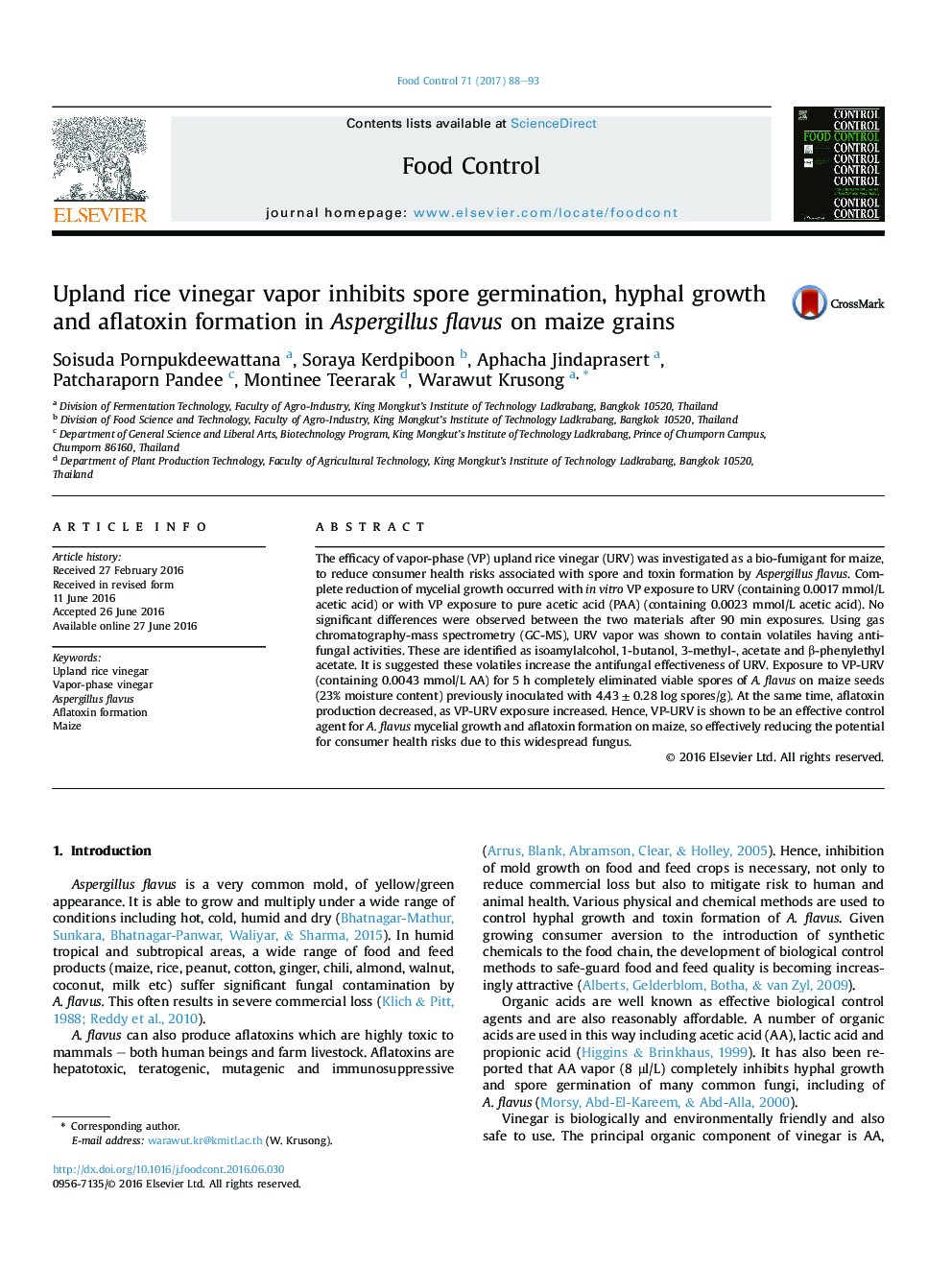| Article ID | Journal | Published Year | Pages | File Type |
|---|---|---|---|---|
| 6389913 | Food Control | 2017 | 6 Pages |
Abstract
The efficacy of vapor-phase (VP) upland rice vinegar (URV) was investigated as a bio-fumigant for maize, to reduce consumer health risks associated with spore and toxin formation by Aspergillus flavus. Complete reduction of mycelial growth occurred with in vitro VP exposure to URV (containing 0.0017 mmol/L acetic acid) or with VP exposure to pure acetic acid (PAA) (containing 0.0023 mmol/L acetic acid). No significant differences were observed between the two materials after 90 min exposures. Using gas chromatography-mass spectrometry (GC-MS), URV vapor was shown to contain volatiles having antifungal activities. These are identified as isoamylalcohol, 1-butanol, 3-methyl-, acetate and β-phenylethyl acetate. It is suggested these volatiles increase the antifungal effectiveness of URV. Exposure to VP-URV (containing 0.0043 mmol/L AA) for 5 h completely eliminated viable spores of A. flavus on maize seeds (23% moisture content) previously inoculated with 4.43 ± 0.28 log spores/g). At the same time, aflatoxin production decreased, as VP-URV exposure increased. Hence, VP-URV is shown to be an effective control agent for A. flavus mycelial growth and aflatoxin formation on maize, so effectively reducing the potential for consumer health risks due to this widespread fungus.
Keywords
Related Topics
Life Sciences
Agricultural and Biological Sciences
Food Science
Authors
Soisuda Pornpukdeewattana, Soraya Kerdpiboon, Aphacha Jindaprasert, Patcharaporn Pandee, Montinee Teerarak, Warawut Krusong,
